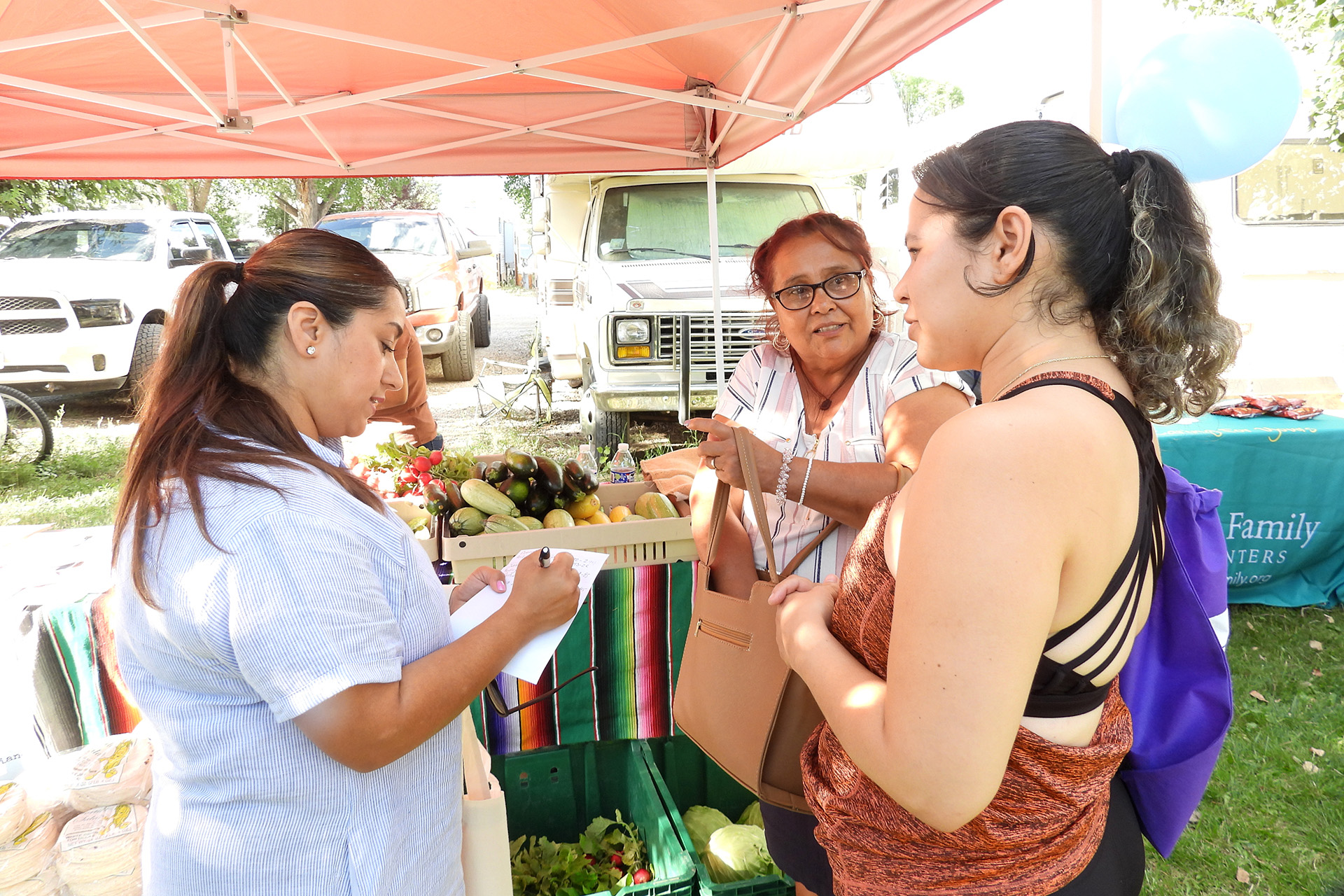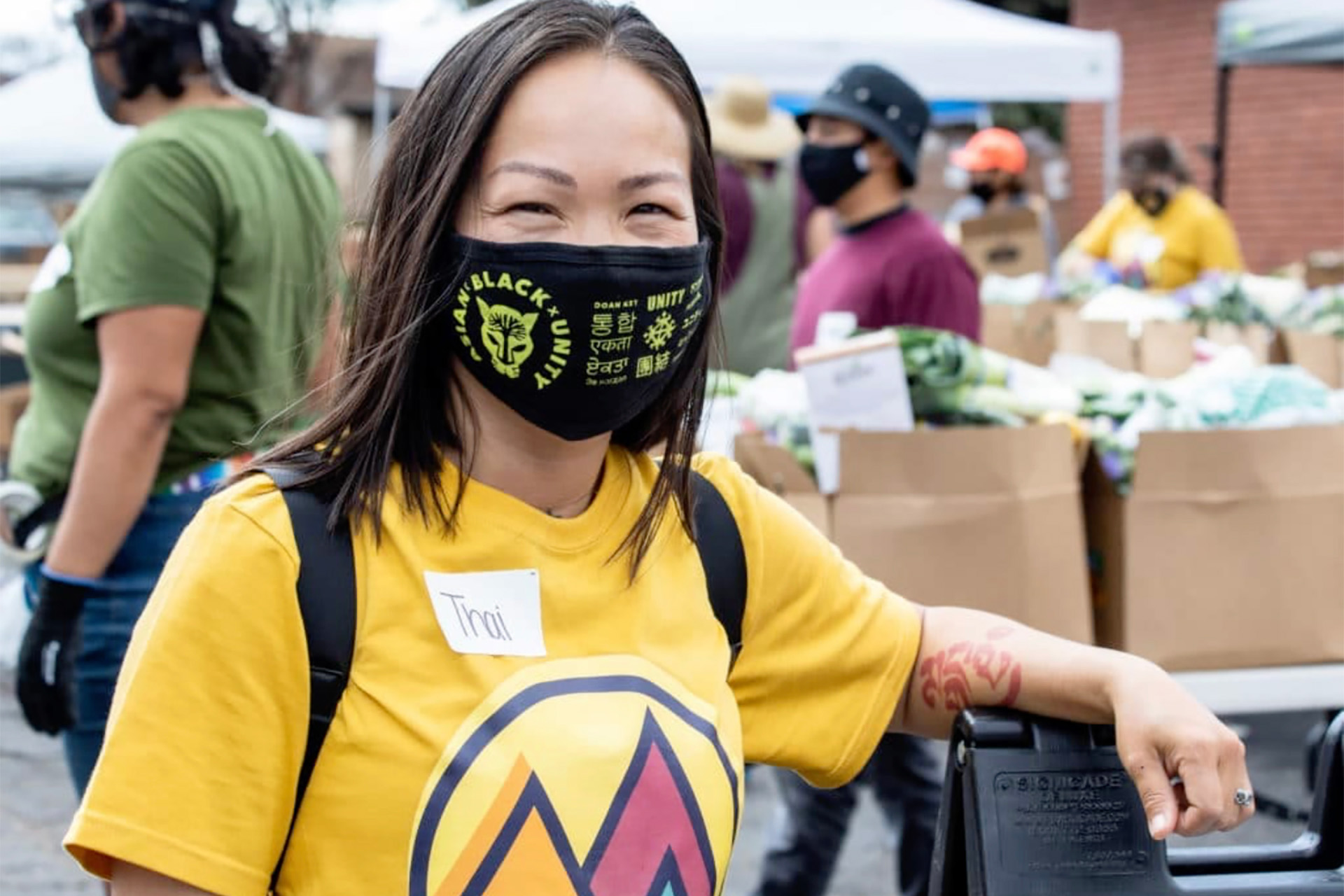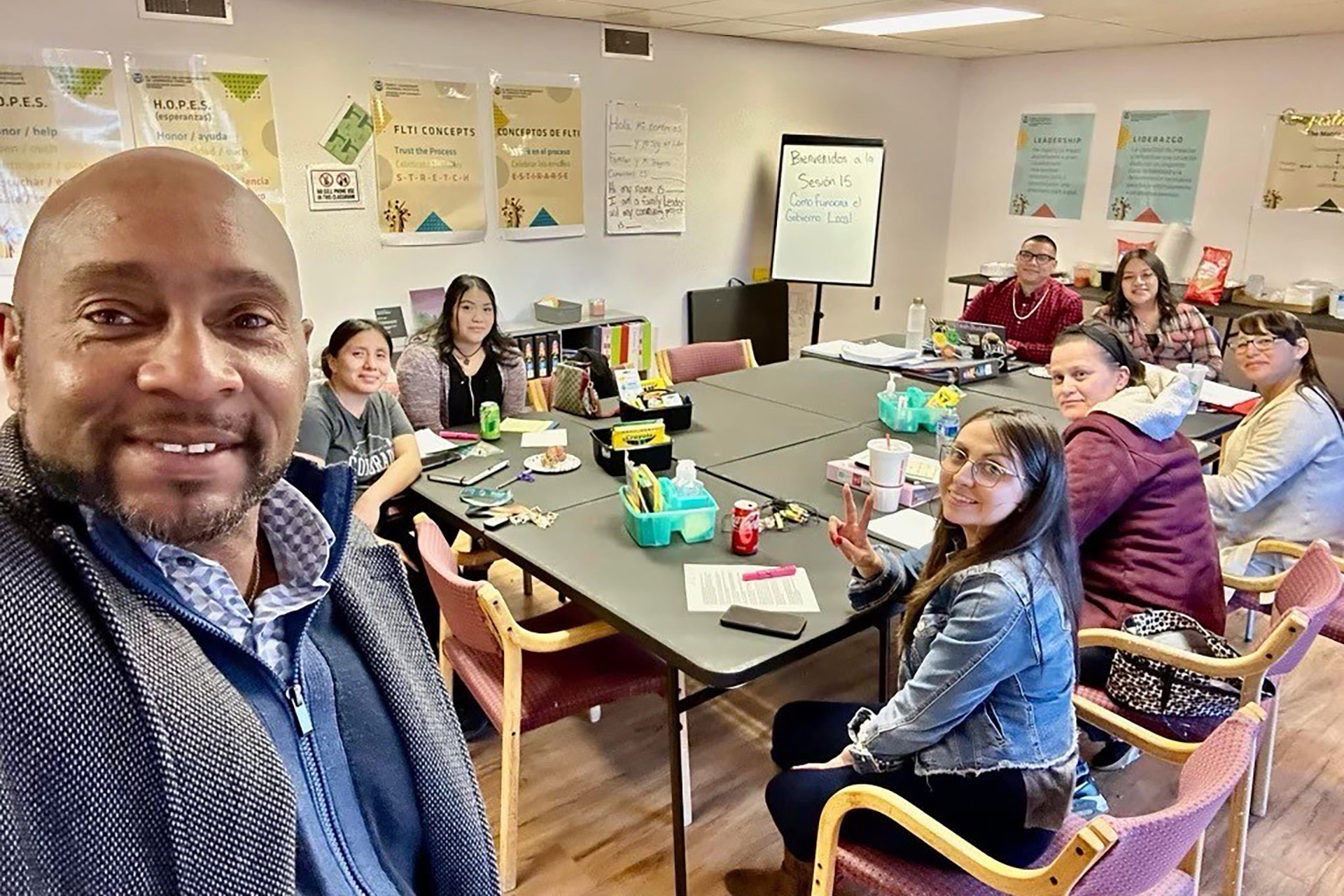
Garfield County Rural Action Project participants held a series of health fairs as their collaborative project. More than 100 community members from Carbondale, Glenwood Springs, New Castle, Silt, Rifle and Parachute attended the health fairs. Photo by Maria Judith Alvarez
Civic engagement and democracy
Extension civic programs promote collaboration, equity and resilient communities
story by Jayme DeLoss
published Oct. 30, 2023
Democracy is more than a feel-good ideal, and civic engagement can save lives, says Patti Schmitt, community development director for Colorado State University’s Office of Engagement and Extension.
“Our ability to work together across differences and across systems is key to community resilience and a healthy democracy,” Schmitt said.
Schmitt and CSU Professor Emeritus David MacPhee analyzed the civic capacity of every county in Colorado and compared their results to Centers for Disease Control data on how each county fared during the COVID-19 pandemic. They found that communities with a strong civic capacity had lower infection and death rates. In other words, communities that were better at working together were more resilient.
“We do this work because when we’re more effective at working across systems and communities, we save lives,” Schmitt said. “Because we’re able to respond more quickly to the challenges that surface.”
Schmitt leads several programs through the Office of Engagement and Extension that build civic capacity. She directs the Family Leadership Training Institute, a program designed to empower people to get involved in their local community by giving them the tools of democracy.
The institute trains community members on how to engage with local government and act as leaders in addressing local challenges in collaboration with decision-makers. The nonpartisan program is geared toward those who have been historically left out of decision-making processes. It is open to anyone and sponsored by the community requesting the programming in partnership with CSU.
Participants take a survey before and after the 20-week course to measure their civic engagement and learning, and graduates typically have tripled their civic knowledge by the second survey. Up to five years after completing the program, 96% of graduates are still civically engaged in their community, and many report that the program had a transformative effect on their lives.
Each participant is asked to identify a need in their community and take action to address it. Graduates have gone on to do amazing, community-building work, Schmitt said.
One San Luis Valley participant established a community garden in an area with no retail grocery options within 50 miles. Two Eagle County graduates created peer support groups for LGBTQ+ individuals and allies, including one offered in Spanish. And Jefferson County resident Thai Nguyen launched Kaizen Food Rescue, which distributed more than 5 million pounds of food to over 2,000 BIPOC families in the southwest Denver Metro area in 2020.

Thai Nguyen, a Jefferson County resident who graduated from the Family Leadership Training Institute in 2018, launched Kaizen Food Rescue after developing her leadership skills in the program. Photo courtesy of Food Bank of the Rockies
“The most important lesson I learned was that my voice matters, and I have the power to make a positive change in my community,” Nguyen said. “This newfound confidence in my ability to advocate for important issues like food justice has been invaluable. I’ve applied this knowledge by actively engaging in community initiatives, addressing local concerns and working toward meaningful community-led solutions.”
Other Engagement and Extension programs focused on building civic capacity:
- Civic Learning Labs are short, civic leadership classes addressing specific community issues, like food systems and affordable housing. Neighborhoods and groups explore the challenges they are facing and learn tools to work on those challenges together.
- The Rural Action Project facilitates community conversations and unites community members through a collaborative project chosen by the group.

Alamosa Mayor Ty Coleman takes a photo with Family Leadership Training Institute participants in the San Luis Valley. The program gives residents time to form meaningful relationships with local and state elected officials and demystifies government operations. Photo courtesy of Ty Coleman
In Spring 2023, the Rural Action Project’s pilot year, 10 communities around the state implemented projects supported by mini-grants from the Office of Engagement and Extension. One community built an adobe oven at a community center to teach traditional baking and celebrate Indigenous cultural influences. Sterling hosted its first Cinco de Mayo event led by the Spanish-speaking community, with more than 600 people in attendance. The event included interpreters to help connect community members.
Schmitt said including more voices in community conversations is critical for resilient, thriving communities and a healthy democracy.
“When we’re better at working together and including more people who should be involved in the conversation because they’re impacted by it, we’re all better off,” Schmitt said.
A more perfect union. Sometimes it seems within reach. Other times, it feels like it’s impossible. At Colorado State University, faculty, students and staff are working together to strengthen our democracy. As President Amy Parsons noted in her inaugural Fall Address, CSU is uniquely positioned to be a leader at this unique moment in readying citizens to participate in all facets of civil society. This special report from SOURCE explores the work happening at CSU as well as answering those tough questions in order to blaze a path toward a healthy democracy.